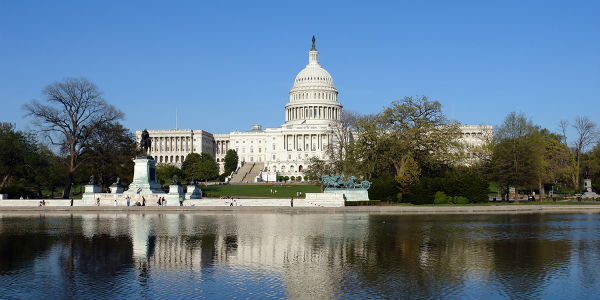Things that are certain

Benjamin Franklin once said that the only certain things in life are death and paying taxes. Well, we all know not everyone pays income taxes, so I guess that is not for certain. We do know that everyone will leave this world. That is a certainty. Hopefully, when we do leave, we will have worked to make the world a better place.
I would like to propose that there may be another certainty in life. Something that those involved in the financial services industry or any business for that matter understands. And that certainty is regulation, the process of government telling others what to do or how to do it.
I have been a regulator twice in my professional career, first as Director of the Illinois Department of Financial Institutions and second as Chairman and a Board Member of the National Credit Union Administration. In between those careers, I was in the private practice of law representing clients in the financial services industry. As a result, I’m able to see both sides of issues. And I’ve tried my best to bring this diverse knowledge and perspective to my position on the NCUA Board.
In my first major address as Chairman, I said that my view on regulation was as little as possible and as much as necessary. I still have that view today.
It was unfortunate that as a result of the financial meltdown the federal government, both elected and appointed officials, often felt the need to put in place as much regulation as possible, and perhaps not just what was necessary to prevent a reoccurrence of what happened.
The Consumer Financial Protection Bureau created as one of the responses to the financial crisis, some now believe, will one day be enshrined in the Guinness Book of World Records as the government agency with more regulations than any other agency, board, bureau, commission or department.
Businesses of all types across the country believe the government has gone beyond what is necessary in putting in place what they believe are safeguards to protect against another economic downturn. They believe the government is now constraining businesses to the point that they can no longer grow, make a profit and, in some cases, survive. The chant for many has become enough is enough.
I can understand the view of those who believe less is better. To try and function with added constraints is neither easy nor desired. Many believe regulation contradicts the claim of functioning in a free society.
You must realize and understand that some things in life never change. There will always be government; hence, there will always be regulation. So once we understand and accept that premise, we can work to see how best we can mold the outcome of a proposed regulation and what we can expect from the proposing regulator.
I believe that a regulator, for every regulation that is proposed, should be required to do the following:
- Fully explain the regulation.
- Tell why it is needed.
- Tell you what it will cost.
At least with those three simple rules, the regulated should be able to understand what they will have to do, why they will have to do it and the cost of having to comply.
Can you expect anything else? Sure, you can expect the opportunity to express what your thoughts are about the rule, and how it can be made better. Regulators can also minimize the costs of regulation and provide transparency to ensure that the marketplace remains fair and vibrant. As for eliminating all costs of regulation, sorry, I don’t think so.
Regulation, if overdone, can cause the death of business. And that is one thing I am certain of.





